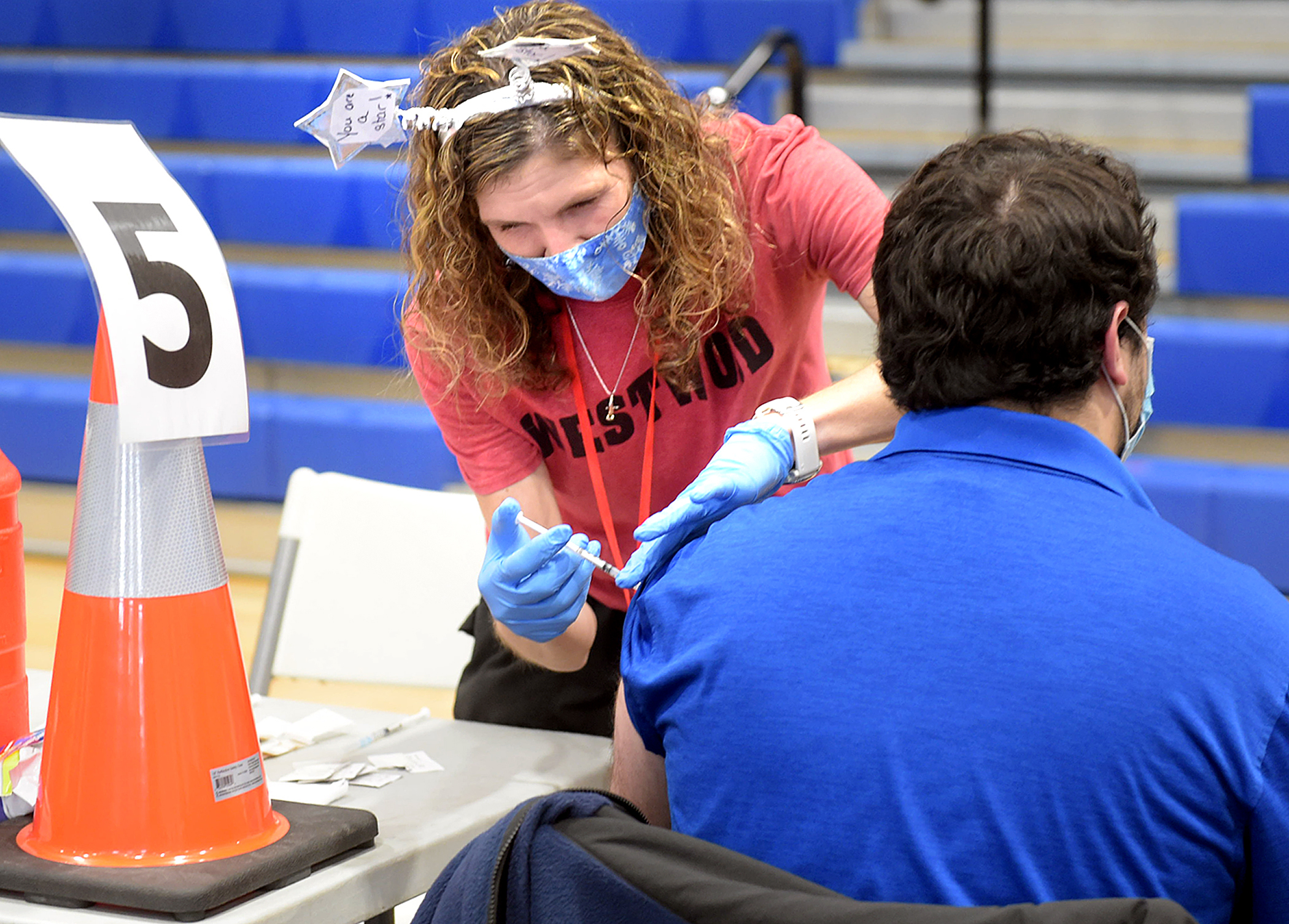This is how it began.
A little more than a year ago – Feb. 27, 2020 – a high school in Washington state closed for two days for a deep cleaning and disinfecting.
That was after it was announced a relative of a person who worked there had come down with COVID-19.
The first American cases of the coronavirus had been noted the month before at a nursing facility in the Pacific Northwestern state – and officials didn’t want to take any chances.
A week later, March 5, an entire school district in Washington state did something that would become the school rule from then on out: It sent its 24,000 students home and shifted to remote learning for two weeks, over concerns of the same.
That following week, on Friday the 13th on the other end of the country, Gov. Jim Justice ordered all West Virginia schools shuttered indefinitely, in anticipation of the pandemic.
Monday roll call
Friday, Monongalia Schools Superintendent Eddie Campbell Jr. had a different kind of anticipation.
He was looking forward to Monday, and the scheduled return to five-day-a-week, in-person learning for the county’s students in grades 9-12.
Pre-kindergarten and elementary students went back last week, along with the middle-schoolers, as part of the mandate by the state Board of Education.
Too many students were losing academic ground, the state BOE contended.
Too many were missing out on breakfast and lunch in the cafeteria, which, in some households, might be the only real sustenance of the day for growing bodies.
Too many were at the whim of WiFi, in a mostly rural state.
And too many, board members worried, were living in the shadow of domestic circumstances that might be potentially dangerous – as they were away from trained and watchful eyes alert for any intervention from the relative safety of the school building.
Come Monday in Mon County, Campbell said, the in-person attendance rate should be anywhere from 70% to 80%.
The numbers are coming from individual schools, he said, and will serve as a rough average until official rolls are tallied.
However, the superintendent said, those are numbers being carried on a message that couldn’t be clearer: That most Mon families want their children in school.
“We have to do what our families are telling us,” the superintendent said, previously.
The coronavirus, meanwhile, continues to be a presence in the school district.
Ten students tested positive last week, along with five staffers.
Contact tracing put another 117 students, plus an additional five employees, into quarantine for two weeks as a precaution.
Mask-wearing in Mon’s schools is strictly enforced, along with other pandemic protocols.
To date, all of the district’s cases have been from community spread, and not – Campbell reiterated – through any outbreaks in any school buildings.
“That’s why it’s important we don’t let up,” he said.
Vaccine road trip
Tamping outbreaks in the building, though, means getting teachers and others who work with students vaccinated.
Teachers and other school employees in the district who are in the 40- and 50-year age range are all but covered with both doses.
However, that still leaves the younger employees in inoculation limbo, while they register through Everbridge – an online portal not necessarily designed to do what it’s doing in the Mountain State.
More and more of those workers in recent days have been motoring next door to Maryland, to roll up their sleeves at a Walgreens pharmacy in Oakland, which is about an hour’s drive from Morgantown.
The Terrapin State is among the 20 in the U.S. that don’t have residency requirements for the vaccine.
In Mon County, Campbell is pragmatic about the COVID road trips, which are growing increasingly more common across the nation.
“Whatever list we can get our employees on works,” the superintendent said.
Dale Lee, of the West Virginia Education Association, agrees – but only to a point.
He said he’s working with the state Department of Education on the revamped initiative by the governor to get 40- and 50-year-old teachers and other school personnel in West Virginia’s 54 other counties vaccinated as well.
“I’m hearing from our members who are driving elsewhere for the vaccine,” the union president said.
“The governor said our teachers and other school personnel would be a priority, and it’s important they stay a priority.”
TWEET@DominionPostWV




